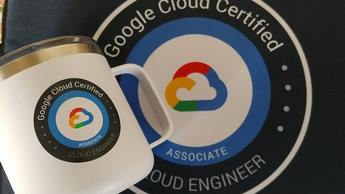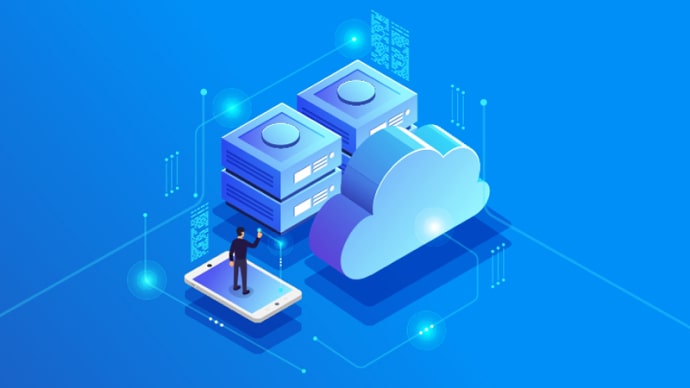Use VCE Exam Simulator to open VCE files

Get 100% Latest Professional Cloud Database Engineer Practice Tests Questions, Accurate & Verified Answers!
30 Days Free Updates, Instant Download!
Google Professional Cloud Database Engineer Certification Practice Test Questions, Google Professional Cloud Database Engineer Exam Dumps
ExamSnap provides Google Professional Cloud Database Engineer Certification Practice Test Questions and Answers, Video Training Course, Study Guide and 100% Latest Exam Dumps to help you Pass. The Google Professional Cloud Database Engineer Certification Exam Dumps & Practice Test Questions in the VCE format are verified by IT Trainers who have more than 15 year experience in their field. Additional materials include study guide and video training course designed by the ExamSnap experts. So if you want trusted Google Professional Cloud Database Engineer Exam Dumps & Practice Test Questions, then you have come to the right place Read More.
Understanding the Role of a Professional Cloud Database Engineer
Data has become the animating force of the digital age, shaping industries, fueling decision-making, and influencing innovation at every scale. With organizations generating colossal volumes of information every second, the demand for reliable, secure, and scalable solutions has reached an all-time high. Google Cloud Platform, often abbreviated as GCP, provides enterprises with sophisticated tools to manage their data infrastructure efficiently. Among the professionals ensuring that this data is not just stored but also accessible and safeguarded are Google Cloud Database Engineers. They are the architects and custodians of information systems, working behind the scenes to ensure smooth operations in a realm where downtime or data loss can be catastrophic.
The journey to becoming a Google Cloud Database Engineer is both challenging and rewarding. It requires mastery of foundational database principles, fluency in SQL, and an understanding of the multifaceted nature of cloud platforms. At the core of this professional pathway lies the Google Cloud Certified Professional Cloud Database Engineer certification. This credential is globally recognized and has emerged as one of the most prestigious validations of expertise in cloud database engineering. For those aspiring to step into this demanding profession, understanding its significance and the preparation required can open doors to thriving opportunities in the evolving landscape of digital transformation.
Google Cloud Platform has become an indispensable resource for businesses seeking to leverage cloud-native technologies. Unlike traditional on-premises setups, GCP offers scalability, high availability, and seamless integration with other services, from analytics to artificial intelligence. As enterprises migrate their data assets to the cloud, the need for professionals who can navigate the complexities of this transition has become acute. Google Cloud Database Engineers stand at the forefront of this shift, ensuring that databases are not only migrated successfully but also optimized for long-term performance.
The certification for these engineers is more than a test of theoretical knowledge. It evaluates an individual’s ability to design resilient architectures, migrate workloads efficiently, and manage hybrid and multi-database environments. In doing so, it mirrors the reality of today’s enterprise landscape, where data ecosystems are diverse, multifaceted, and constantly evolving.
The responsibilities of a database engineer within Google Cloud extend far beyond maintenance. They are expected to plan implementations that align with organizational strategies, coordinate deployments across multiple teams, and ensure compliance with security and regulatory frameworks. Their expertise allows companies to achieve data resilience, ensuring systems remain functional even when unexpected disruptions occur.
At its core, this role is about balance. Engineers must weigh performance against cost, scalability against complexity, and innovation against risk. By mastering these delicate trade-offs, they contribute not only to the technical robustness of a system but also to the financial efficiency and strategic growth of an organization.
The Professional Cloud Database Engineer certification stands as a testament to an individual’s capacity to work with advanced cloud technologies. Passing the exam validates one’s ability to build scalable and fault-tolerant solutions on Google Cloud. It affirms expertise in managing databases across multiple platforms and executing complex migrations without disruption.
Possessing this certification has tangible benefits. Employers view it as evidence of dedication and proficiency. It enhances one’s credibility among peers and can serve as a decisive factor in hiring decisions. More importantly, it aligns professionals with industry standards, ensuring that their knowledge remains relevant amid the rapidly changing technological landscape. As enterprises increasingly rely on cloud-native solutions, certified engineers are seen as indispensable resources for sustaining innovation.
In recent years, the pace of cloud adoption has accelerated beyond forecasts. Organizations are compelled by the promise of flexibility, scalability, and reduced overhead costs. However, with this transition comes complexity, particularly in the realm of databases. Ensuring secure, efficient, and reliable database systems requires a level of expertise that cannot be improvised.
Google Cloud Database Engineers fill this void. Their ability to deploy robust systems that guarantee uptime and resilience is essential in industries ranging from healthcare to finance. For example, in the financial sector, where milliseconds can determine profit or loss, the reliability of a database can directly influence success. In healthcare, where sensitive patient information must be safeguarded, engineers ensure compliance with strict data governance protocols while maintaining seamless access for practitioners.
The demand for this profession is not a temporary phenomenon. As machine learning, artificial intelligence, and advanced analytics become integral to business models, the reliance on strong database infrastructures will only intensify. Engineers who hold the Google Cloud certification stand to benefit from a market hungry for their specialized skills.
Achieving the certification requires a blend of theoretical knowledge and practical experience. SQL proficiency is a foundational requirement. Engineers must be comfortable writing complex queries, optimizing performance, and understanding advanced functions. Beyond SQL, they must master database principles, including normalization, indexing strategies, and transaction management.
Equally important is knowledge of Google Cloud itself. Candidates must understand projects, regions, virtual machines, storage solutions, and networking principles. This knowledge allows them to design architectures that align with the global infrastructure provided by GCP. Furthermore, familiarity with concepts such as scalability, fault tolerance, and connectivity options ensures that their solutions can adapt to the unpredictable demands of modern enterprises.
The rewards of mastering these skills and achieving certification extend beyond professional recognition. Certified engineers become part of a vibrant community of practitioners who share insights, innovations, and best practices. This network provides opportunities for collaboration and career growth. Additionally, the certification opens pathways to specialized roles, from senior cloud database engineer to cloud data architect, each offering opportunities for leadership and influence.
From a financial perspective, certified engineers often command higher salaries, reflecting the value they bring to organizations. Employers are willing to invest in professionals who can guarantee the reliability and efficiency of mission-critical databases. This financial incentive, combined with the opportunity to work on cutting-edge technologies, makes the career particularly appealing.
For those aspiring to enter this profession, preparation must be deliberate. The journey involves studying official materials, engaging with practice exams, and experimenting with real-world scenarios in Google Cloud’s free-tier environment. The certification exam is not merely a test of memory but a measure of problem-solving ability and critical thinking.
Staying updated is equally vital. The cloud ecosystem is in constant flux, with new features, tools, and best practices emerging regularly. Professionals who remain engaged with the latest developments maintain an edge, ensuring that their expertise remains aligned with industry needs. Subscribing to updates, following industry thought leaders, and participating in professional communities all contribute to this ongoing learning process.
Preparing for Google Cloud Database Engineer Certification
The Google Cloud Database Engineer certification stands as one of the most distinguished validations for professionals aspiring to specialize in managing, architecting, and optimizing databases in a cloud-native ecosystem. This credential is designed for individuals who already possess a foundational knowledge of databases and want to expand their proficiency by applying these skills within the expansive Google Cloud Platform. The responsibilities it emphasizes include migrating legacy databases into GCP, designing resilient architectures, configuring connectivity, ensuring high availability, and monitoring performance using tools integrated within the platform.
Unlike traditional certifications that focus solely on theory, this particular credential demands that candidates demonstrate practical expertise in solving real-world challenges. The exam measures not only technical acumen but also the candidate’s ability to weigh trade-offs between cost, performance, and reliability. It requires understanding how to integrate databases with other GCP services such as Compute Engine, Cloud Storage, BigQuery, or Pub/Sub. This breadth ensures that those who pass the certification can be entrusted with guiding enterprises through complex cloud adoption journeys.
Before attempting the exam, it is vital to internalize fundamental concepts that provide a strong foothold for more advanced topics. A candidate must be adept in structured query language and its nuances, including crafting optimized queries, managing data types, applying joins, and using indexing to accelerate retrieval. Database design principles form another essential dimension—comprehension of normalization, referential integrity, and transactional consistency helps establish reliable systems that withstand enterprise-scale demands.
Alongside database knowledge, grasping the mechanics of the cloud is indispensable. Familiarity with GCP resources such as virtual machines, storage classes, regions, and zones enables a professional to envision how databases operate within the distributed architecture of the cloud. By understanding these building blocks, engineers can tailor solutions that meet the dual objectives of performance and sustainability.
Another layer of required expertise involves security protocols. Protecting sensitive data involves using identity and access management policies, encryption strategies, and networking rules. As organizations entrust cloud providers with their most valuable digital assets, database engineers must ensure that configurations adhere to compliance frameworks and prevent vulnerabilities from undermining trust.
Theoretical learning establishes a baseline, but mastery is cultivated through practice. Google Cloud offers interactive labs, sandbox environments, and hands-on projects where candidates can experiment with real scenarios. For example, configuring replication between regions, migrating from on-premises systems, or deploying managed services like Cloud SQL or Spanner enhances intuitive understanding. These exercises reinforce not only the mechanics of implementation but also the decision-making skills needed in production environments.
Engaging with practical tasks also prepares candidates for the performance-based nature of the exam. Rather than simply recalling definitions, the test frequently requires applying knowledge to solve case-based problems. Someone with hands-on practice will find it easier to evaluate a scenario and determine whether to recommend Cloud SQL for relational workloads, Firestore for document-based applications, or Spanner for globally distributed systems. This ability to map requirements to appropriate technologies is precisely what employers expect from certified professionals.
The certification exam consists of multiple-choice and multiple-select questions, each crafted to test practical problem-solving abilities. Domains often include designing for high availability, managing migrations, configuring performance optimization, and ensuring compliance through security settings. Each question is contextualized within a real-world narrative, requiring candidates to interpret constraints and make informed judgments.
The time-limited format adds another dimension of challenge, emphasizing the importance of time management. A candidate must balance careful analysis with efficiency, ensuring that each scenario is addressed without excessive deliberation. Practicing under simulated conditions helps cultivate the mental agility required during the actual assessment.
The exam blueprint provided by Google serves as a reliable guide for preparation. Reviewing this document helps candidates allocate study time strategically across domains. By concentrating effort on weaker areas and reinforcing strengths, individuals can enhance their chances of achieving success in the first attempt.
A hallmark of the Google Cloud Database Engineer is the ability to discern when to use different services. Cloud SQL provides a managed environment for traditional relational databases such as MySQL, PostgreSQL, and SQL Server. It reduces operational overhead while ensuring scalability and reliability. Spanner represents a more advanced offering, combining relational consistency with horizontal scalability, making it suitable for global enterprises with demanding workloads.
Firestore, on the other hand, specializes in document-based databases that serve real-time applications. It integrates seamlessly with mobile and web development frameworks, providing synchronization and offline support. Bigtable caters to massive analytical workloads, delivering petabyte-scale performance for time-series or key-value data. Understanding these distinctions ensures that engineers align technology with organizational needs, preventing costly missteps in system architecture.
Alongside these managed offerings, engineers must master connectivity and hybrid solutions. Configuring private service access, enabling secure VPN connections, and setting up peering between networks allow databases to integrate with diverse environments. This is particularly important for enterprises undergoing gradual migrations, where hybrid strategies preserve continuity while adopting modern capabilities.
A structured preparation plan can be greatly enhanced by tapping into the wide range of resources available. Google’s documentation provides official and precise descriptions of services, configurations, and best practices. Complementing this with instructor-led training programs deepens understanding by offering guided explanations and curated learning paths.
Community-driven resources are another invaluable asset. Discussion forums, professional groups, and online communities provide opportunities to exchange insights, clarify doubts, and learn from peers’ experiences. Many candidates also benefit from practice exams that simulate the format, difficulty level, and pressure of the real test. These resources help gauge readiness and pinpoint areas requiring additional focus.
Incorporating real-world projects into preparation further enriches knowledge. For instance, deploying a multi-region database for an e-commerce application or orchestrating a migration from an on-premises Oracle system into Cloud SQL builds applied confidence. The more scenarios a candidate encounters, the easier it becomes to navigate exam case studies with precision.
Achieving the certification is not just about passing an exam—it transforms how an individual is perceived in the professional world. Organizations value certified database engineers for their proven expertise, entrusting them with critical tasks such as designing infrastructures that sustain customer experiences and maintain business continuity. Certified professionals often secure roles as senior engineers, cloud architects, or consultants guiding enterprises through digital transformation.
The credential also contributes to personal growth. It instills confidence, sharpens analytical faculties, and encourages continuous learning in a rapidly evolving field. Professionals become part of a global network of peers who share a commitment to excellence in cloud computing. This community not only fosters collaboration but also serves as a catalyst for innovation.
Cloud technology evolves at a swift pace, and remaining relevant requires ongoing commitment to learning. Certified engineers must regularly update their knowledge as Google Cloud introduces new features, tools, and practices. Engaging with release notes, technical blogs, and product announcements ensures alignment with the most current capabilities.
Participation in professional networks, attending conferences, and contributing to open discussions can further amplify expertise. This ongoing engagement enables professionals to anticipate industry shifts, adapt to emerging trends, and maintain their position as indispensable contributors to the digital economy.
Mastering Google Cloud Database Engineer Exam Strategies
The Google Cloud Database Engineer certification represents a benchmark of excellence, validating a professional’s ability to design, manage, and optimize database systems within the vast ecosystem of Google Cloud. While technical knowledge is indispensable, success also hinges on disciplined preparation, strategic thinking, and familiarity with the exam format. The certification exam is designed not only to test theoretical understanding but also to measure practical decision-making in complex scenarios. This makes readiness a blend of conceptual clarity and applied skills.
A candidate cannot simply rely on rote memorization; the exam requires the ability to weigh trade-offs, adapt to situational constraints, and select the most suitable services for varied use cases. Therefore, the journey toward this certification should be approached as a holistic endeavor, encompassing learning, experimentation, and reflection.
One of the most vital steps in preparation is creating a comprehensive roadmap that balances time across all required domains. The certification emphasizes multiple areas including migration strategies, performance tuning, high availability designs, security, compliance, and integration with other Google Cloud services. Allocating sufficient focus to each of these ensures a well-rounded grasp rather than superficial familiarity.
Breaking study sessions into thematic categories can aid retention. For example, dedicating focused hours to relational database management, then shifting to document-based solutions like Firestore, and later exploring globally distributed architectures like Spanner creates a layered understanding. Each learning cycle builds upon the previous, reinforcing knowledge through structured progression.
A study plan should also reserve time for review and practice. Revisiting earlier topics prevents knowledge decay, while timed practice sessions simulate the pressure of the actual test. This blend of structured learning and consistent review fosters confidence and resilience.
The hallmark of a skilled Google Cloud Database Engineer lies in practical competence. The exam challenges candidates with scenarios that mirror real-world dilemmas, requiring more than theoretical awareness. This makes hands-on practice indispensable. Configuring Cloud SQL instances, experimenting with replication, and setting up failover mechanisms provide direct exposure to the mechanics of database administration in Google Cloud.
Equally important is experimenting with hybrid architectures. Many enterprises still operate a combination of on-premises and cloud-based systems, making knowledge of secure connectivity, VPN setups, and network peering invaluable. By working on such configurations in test environments, candidates cultivate problem-solving instincts that extend beyond theoretical constructs.
Deploying projects that mimic enterprise-scale scenarios further strengthens applied expertise. For instance, setting up a multi-region database to sustain global user demand or orchestrating migration from a legacy Oracle system into Google Cloud helps solidify conceptual learning into tangible skill.
A central pillar of preparation involves leveraging Google Cloud’s extensive documentation. These resources are meticulously maintained, offering detailed descriptions, architectural diagrams, and recommended practices. Reading documentation with an analytical lens allows candidates to understand not just how services function but why they are designed in specific ways.
Complementing documentation with structured training content enhances comprehension. Instructor-led courses or self-paced paths provide curated explanations that bridge gaps between technical specifications and practical application. These structured platforms guide learners through step-by-step exploration, ensuring that even complex services like Spanner or Bigtable are demystified.
Community-driven platforms add another valuable layer. Participation in forums, professional networks, or online study groups offers exposure to diverse perspectives. By exchanging queries, sharing insights, and learning from others’ challenges, candidates broaden their knowledge horizon and strengthen their interpretive skills.
The exam structure itself must be understood thoroughly. Comprising multiple-choice and multiple-select questions, it evaluates knowledge through situational problem-solving. Each question often presents a narrative scenario involving an organization’s requirements, technical limitations, and business goals. The candidate must assess these variables and determine the optimal database solution.
Managing time is crucial. With a finite window to address all questions, candidates must avoid dwelling too long on complex scenarios. Practicing under time constraints helps develop the discipline of making informed decisions quickly. Employing elimination techniques can also improve efficiency—discarding clearly incorrect options narrows focus on plausible answers.
Awareness of common pitfalls further supports exam success. Many questions are intentionally nuanced, distinguishing between superficially correct answers and those aligned with best practices. Developing the ability to detect subtle cues in phrasing or requirements ensures accuracy and precision.
A successful candidate must demonstrate dexterity in selecting appropriate services for specific workloads. Cloud SQL remains the go-to choice for managed relational databases, catering to workloads that require MySQL, PostgreSQL, or SQL Server support. It offers convenience and automation of administrative tasks, ensuring stability and reliability.
Spanner, by contrast, stands as a revolutionary offering—combining relational consistency with horizontal scalability. It suits mission-critical workloads demanding both high throughput and global availability. Mastery of Spanner involves understanding its trade-offs, such as cost implications and design complexity.
For document-oriented needs, Firestore provides seamless integration with real-time applications. Its capacity for synchronization and offline support makes it particularly suitable for mobile and web solutions. Meanwhile, Bigtable supports immense analytical workloads, particularly in time-series and operational data scenarios. Recognizing when to recommend each of these services is central to passing the certification.
Equally vital is comprehension of networking and integration. Database engineers must be skilled in configuring private service access, establishing secure communication, and ensuring compliance with organizational security standards. This knowledge ensures that architectures are not only performant but also resilient and secure.
Mock assessments play a pivotal role in preparation. By simulating the style, difficulty, and pressure of the actual exam, practice tests reveal both strengths and weaknesses. Reviewing incorrect responses is as valuable as scoring well; it uncovers knowledge gaps and highlights areas needing refinement.
Mock tests also cultivate psychological resilience. The pressure of a timed exam can unsettle even the most knowledgeable candidates. Regular practice under exam-like conditions builds composure, enabling candidates to maintain focus and clarity under real constraints.
Furthermore, analyzing patterns in practice questions enhances the ability to recognize recurring themes. For instance, questions often revolve around optimizing cost-performance balance, ensuring durability, or architecting for disaster recovery. Familiarity with these recurring themes fosters intuitive problem-solving during the actual test.
Confidence is forged not merely by reading but by doing. Working on real projects that reflect enterprise demands adds authenticity to preparation. For example, deploying a database for an e-commerce platform requires integrating payment systems, ensuring transaction reliability, and scaling for unpredictable traffic surges. Such projects challenge the engineer to synthesize diverse knowledge areas, from schema design to network configuration.
Another illustrative project might involve migrating a legacy on-premises warehouse into BigQuery or Cloud SQL. This process tests proficiency in data extraction, transformation, loading, and post-migration validation. Successfully completing such tasks provides assurance that one can replicate similar processes in real organizational contexts.
Confidence also grows from iteration. Each project, whether successful on the first attempt or requiring multiple refinements, strengthens intuition. By grappling with complexities and learning from mistakes, candidates internalize lessons that serve them both in the exam and professional life.
While exam success is an achievement in itself, the benefits extend far beyond. Organizations hold certified Google Cloud Database Engineers in high regard, valuing them as specialists capable of steering digital transformation. Certification opens pathways to advanced roles such as cloud architect, database migration consultant, or enterprise systems designer.
On a personal level, certification brings recognition and self-assurance. It validates the countless hours spent learning, experimenting, and refining one’s craft. The credential also fosters inclusion in a global community of like-minded professionals, where collaboration and shared innovation create continuous opportunities for growth.
The credential further enhances adaptability. With enterprises increasingly adopting hybrid and multi-cloud strategies, certified professionals find themselves well-equipped to guide transitions, optimize architectures, and prevent costly pitfalls. This adaptability ensures sustained relevance in a rapidly evolving digital ecosystem.
Earning the certification marks a milestone, not a conclusion. Technology evolves relentlessly, and professionals must commit to lifelong learning to remain effective. Regular engagement with Google Cloud updates, whitepapers, and release notes ensures alignment with the platform’s evolving capabilities.
Participation in conferences, webinars, and technical meetups further amplifies exposure to emerging trends. Such forums not only present new knowledge but also enable networking with thought leaders and innovators. Staying active within professional communities fosters collaboration, sparking ideas that translate into practical advancements.
Another valuable approach is mentoring others preparing for certification. Teaching concepts to peers not only supports community growth but also reinforces one’s own understanding. By explaining topics in varied contexts, professionals deepen their mastery and maintain intellectual sharpness.
Exploring Advanced Preparation for Google Cloud Database Engineer
Achieving mastery as a Google Cloud Database Engineer requires more than simply memorizing concepts or completing practice labs. It demands the ability to integrate knowledge of data management, system scalability, and cloud-native solutions into tangible expertise that aligns with real-world demands. As organizations migrate their data infrastructure to cloud platforms, professionals who can design, manage, and optimize robust databases on Google Cloud find themselves at the forefront of industry transformation. This discussion delves into advanced strategies, nuanced practices, and indispensable resources that elevate preparation for the certification to a higher echelon.
One of the central expectations from a Google Cloud Database Engineer is not merely to understand how to deploy and configure a database, but to do so with acute awareness of scalability, performance tuning, and operational integrity. This requires going beyond the introductory foundation of SQL or GCP projects into advanced aspects of cloud engineering. For instance, knowledge of how to balance workloads using Cloud Spanner or how to implement autoscaling strategies for Cloud SQL clusters is invaluable. These capabilities enable engineers to anticipate challenges that appear when large organizations process petabytes of data across distributed systems.
Another aspect of building technical depth lies in learning how to design architectures that seamlessly integrate Google Cloud databases with applications, analytics platforms, and hybrid systems. Understanding the distinctions between managed services like Cloud Firestore and high-performance options such as Bigtable equips professionals with discernment to select the most suitable service for each unique workload. Such discernment is precisely what the exam seeks to evaluate.
Data migration continues to be one of the most challenging tasks for enterprises shifting to the cloud. Engineers are often confronted with questions about maintaining uptime during migrations, preventing data loss, and guaranteeing transactional integrity. A sophisticated professional must be capable of leveraging both native GCP tools and third-party solutions for migration strategies.
Continuous replication models, for example, can be employed for critical applications that cannot afford downtime. In other cases, bulk-load strategies are preferable where historical datasets need to be transported en masse. The skill lies in determining the correct pathway based on cost, business tolerance for disruption, and architectural requirements. By practicing different migration blueprints in test environments, candidates enhance their fluency in solving nuanced scenarios likely to appear in the exam.
Reliability and high availability are not optional in enterprise settings—they are imperatives. Preparation for the Google Cloud Database Engineer certification must therefore include a thorough exploration of mechanisms that uphold uptime and service continuity. Failover strategies, replica configurations, and cross-region distribution are critical in this respect.
For example, Cloud SQL provides multiple availability configurations, and understanding the differences between zonal and regional availability can be decisive during the exam. Likewise, engineers must develop proficiency with load balancing and monitoring tools that preemptively detect anomalies. It is also beneficial to study real-world disaster recovery models, as the ability to design systems resilient to failure distinguishes a novice from a true expert.
Database engineers carry the responsibility of safeguarding sensitive information against breaches and unauthorized access. This involves applying security concepts that extend beyond encryption. Role-based access control, auditing mechanisms, private service connectivity, and integration with identity and access management frameworks all form part of the engineer’s arsenal.
During preparation, candidates should invest time in constructing environments where these controls are enforced and tested. For instance, practicing how to configure granular permissions for different user groups within Cloud SQL helps in developing confidence in real-world administration. Furthermore, being able to articulate how security measures protect compliance requirements, such as GDPR or HIPAA, shows a complete understanding of the broader context in which cloud database engineers operate.
Another advanced domain lies in performance tuning, where the engineer ensures that systems perform optimally regardless of scale or workload intensity. Knowledge of indexing strategies, partitioning schemes, and caching mechanisms is vital. Cloud-native optimization tools like Query Insights in Cloud SQL or the monitoring dashboards within BigQuery offer deeper visibility into query execution and bottleneck identification.
It is not sufficient to simply know these features exist. Candidates should practice applying optimization strategies to real datasets. Experimenting with large tables, distributed workloads, and stress-testing environments helps develop intuition about performance bottlenecks. Such practice enhances the ability to answer exam scenarios and, more importantly, ensures proficiency in professional responsibilities.
Cloud technology does not remain static; it evolves rapidly. Google Cloud introduces enhancements, new services, and upgraded features regularly. Thus, staying attuned to industry updates is critical for long-term success as a Google Cloud Database Engineer. Reading technical blogs, subscribing to product update feeds, and engaging with professional forums allows individuals to remain ahead of the curve.
Active participation in cloud-focused communities also cultivates peer-to-peer knowledge exchange. By discussing complex scenarios with other engineers, candidates gain access to diverse perspectives and problem-solving approaches. Such dialogue often reveals insights that no guidebook alone can provide, contributing significantly to both exam preparation and career growth.
While theoretical knowledge forms the foundation, practice exams play an equally crucial role in preparation. These simulations replicate the structure, timing, and rigor of the actual test, training candidates to think clearly under pressure. More importantly, they highlight weak areas where additional study is required.
Candidates are advised to treat practice tests not as mere score-generating tools but as diagnostic instruments. Reviewing every incorrect response and understanding why a certain option is correct nurtures critical thinking. Over time, this iterative learning process fosters mastery of the wide-ranging topics encompassed by the certification.
Obtaining certification as a Google Cloud Database Engineer is not the culmination of a journey but a gateway to new opportunities. Many professionals leverage this credential to step into roles such as cloud solutions architect, enterprise database consultant, or technical team leader. The credential acts as evidence of technical expertise and practical capability, qualities highly valued by organizations investing in cloud adoption.
For those inclined toward entrepreneurship, certification also unlocks the ability to provide specialized consultancy services. Businesses transitioning to Google Cloud frequently seek external experts to guide their migration strategies and optimize database infrastructure. Certified engineers can capitalize on this demand, establishing themselves as independent authorities in a competitive market.
Success as a cloud database engineer is not only about technical dexterity. Employers also value individuals who can connect database strategies with overarching business objectives. This means being able to articulate why a particular architecture supports scalability, cost efficiency, or innovation. By blending technical insight with business acumen, engineers position themselves as indispensable contributors to enterprise transformation.
Preparation for the certification should therefore include practice in explaining database decisions in a manner accessible to non-technical stakeholders. This skill amplifies professional value, especially for leadership and consulting positions.
The path toward mastery as a Google Cloud Database Engineer is not defined by a single exam or isolated achievement. Rather, it is a continual odyssey of cultivating expertise, enhancing critical skills, and adapting to the shifting terrain of digital transformation. With organizations increasingly moving workloads, analytics, and mission-critical operations to the cloud, engineers who demonstrate profound command over Google Cloud’s database ecosystem occupy positions of immense influence. This exploration illuminates the strategies, competencies, and mindsets that pave the way from initial learning to long-term mastery.
At the core of any journey toward excellence lies a comprehensive understanding of fundamental concepts. Before delving into the more sophisticated elements of Google Cloud database management, engineers must build strong knowledge of the foundational services. Cloud SQL, Cloud Spanner, BigQuery, and Firestore represent different paradigms of data handling, each optimized for unique circumstances. Understanding how they contrast in scalability, latency, and data modeling ensures informed decision-making in real-world scenarios.
For instance, Cloud SQL offers a managed relational solution well-suited to traditional applications, whereas BigQuery thrives in analytical environments where massive datasets must be queried with unparalleled speed. Recognizing these nuances provides a base upon which more advanced proficiencies are layered.
True expertise emerges when knowledge transcends theory and manifests in practice. Engineers seeking mastery should dedicate significant time to hands-on experimentation. This involves deploying databases across various environments, simulating performance under heavy load, and testing recovery protocols. Such experimentation nurtures intuition, enabling engineers to respond swiftly to challenges rather than relying solely on prescriptive documentation.
Building practice environments also allows for deliberate mistakes, which are powerful teachers. By deliberately misconfiguring replication or testing scenarios where storage thresholds are breached, engineers gain firsthand understanding of how to identify and remediate issues quickly. These controlled trials simulate the unpredictable realities of production systems, equipping engineers with the poise to manage crises effectively.
Modern enterprises operate at scales where manual oversight of databases is impractical. Automation therefore emerges as a keystone of mastery. Engineers who can orchestrate provisioning, scaling, and monitoring through automated workflows bring significant efficiency to organizations.
Google Cloud offers native tools and services that support this endeavor, including monitoring frameworks that trigger automated responses to anomalies. Engineers who become adept at establishing self-healing systems—where failures automatically trigger failover, scaling, or alerting—elevate themselves from operators to architects of resilient ecosystems. Such automation not only reduces human error but also frees engineers to focus on strategic innovation.
As businesses increasingly operate across continents, database engineers must develop proficiency in crafting architectures capable of serving a global user base. This involves balancing trade-offs between latency, consistency, and cost. Cloud Spanner, with its globally distributed design, often plays a pivotal role, but mastery requires knowing when and how to employ its strengths in combination with other services.
Creating global-scale architectures also means anticipating issues of data sovereignty and compliance. Different jurisdictions impose distinct rules on how and where data can be stored. Engineers who can weave regulatory considerations into architectural blueprints demonstrate not just technical competence but also foresight and professionalism.
Performance remains one of the most scrutinized aspects of any database system. Users expect queries to execute in milliseconds and applications to respond instantly. Mastery in this area requires fluency in indexing strategies, caching mechanisms, partitioning schemes, and query optimization.
For analytical workloads, engineers must understand how to structure schemas to reduce redundancy and improve efficiency, particularly when working with petabyte-scale datasets. In transactional environments, performance tuning often revolves around ensuring balanced workloads and preventing bottlenecks caused by inefficient query design. By cultivating expertise in both realms, engineers gain the ability to optimize diverse environments.
No database architecture can be considered complete without rigorous security. Mastery involves embedding security principles at every layer of design and operation. This extends far beyond encryption, incorporating identity management, role-based permissions, auditing frameworks, and network isolation.
Engineers must be adept at creating least-privilege environments where access is strictly limited to essential functions. They should also be capable of demonstrating compliance readiness for regulatory frameworks such as HIPAA, GDPR, or PCI DSS. By integrating security measures into both practice and philosophy, engineers position themselves as trusted stewards of organizational data.
Migration to the cloud often represents a watershed moment for enterprises, and engineers who can guide this transition smoothly provide immense value. Mastery entails not just familiarity with tools but also the wisdom to select the right migration pathway for each scenario.
For example, an organization may require near-zero downtime while migrating a mission-critical system, making replication-based approaches necessary. In contrast, a bulk data import strategy may suffice for archival datasets. Engineers who can tailor migration strategies to align with business requirements exhibit the adaptability demanded by the profession.
Beyond technical knowledge, engineers must cultivate a problem-solving mindset. Mastery is reflected in the ability to dissect complex problems, identify root causes, and design elegant solutions. This analytical acumen is often tested during certification exams but becomes even more crucial in professional settings where real stakes are involved.
Problem-solving in database engineering often means balancing conflicting priorities: cost against performance, scalability against simplicity, or resilience against speed of deployment. Engineers who can navigate these trade-offs while keeping business objectives in focus exemplify true mastery.
Cloud platforms evolve at a pace that defies complacency. New features, optimizations, and services are introduced with regularity. Engineers must therefore embrace a mindset of lifelong learning. This includes engaging with product release notes, attending industry conferences, and participating in professional communities where knowledge flows organically.
Continuous learning also involves broadening horizons beyond immediate responsibilities. Exploring adjacent domains such as machine learning integration, data warehousing, or multi-cloud strategies enriches an engineer’s capacity to innovate. By remaining a perpetual learner, the engineer safeguards relevance and enhances adaptability.
Technical mastery, while critical, is only part of the equation. Engineers who aspire to influence must also cultivate communication and leadership abilities. Explaining complex database architectures to non-technical stakeholders, persuading decision-makers of the merits of particular designs, and guiding teams through implementation all require eloquence and empathy.
Leadership in this domain also means mentoring junior engineers, sharing knowledge openly, and fostering collaborative environments. By embracing these responsibilities, engineers not only elevate their teams but also reinforce their own understanding of concepts through teaching.
The Google Cloud Database Engineer certification serves as a recognized validation of expertise. However, mastery is demonstrated not by the certificate itself but by how the knowledge it represents is applied in the workplace. Certified engineers often find themselves positioned for roles such as cloud solutions architect, database consultant, or technical project lead.
The credential also bolsters credibility in entrepreneurial endeavors. Independent consultants with certification can more effectively attract clients and command higher trust. In both employment and consultancy, certification acts as a catalyst, but mastery transforms it into a lifelong asset.
The future of database engineering will be shaped by emergent trends such as serverless architectures, real-time analytics, and artificial intelligence integration. Engineers who aim for mastery must anticipate these developments and adapt proactively. For example, serverless databases reduce the need for manual scaling, but they also require a nuanced understanding of cost modeling and usage optimization.
Artificial intelligence introduces new opportunities for predictive analytics and automated performance tuning, but also new responsibilities for data governance. Engineers who embrace these innovations position themselves at the forefront of the next era in cloud technology.
Becoming a Google Cloud Database Engineer requires more than simply acquiring technical expertise; it is a journey of developing resilience, foresight, and adaptability in an ever-evolving technological landscape. The certification acts as a gateway to mastering the intricate world of database design, migration, management, and optimization on Google Cloud Platform, and it emphasizes the importance of both foundational and advanced knowledge. Those who undertake this path find themselves not only equipped with specialized technical acumen but also capable of contributing to transformative solutions that fuel business growth and innovation.
The preparation process brings clarity on crucial domains such as high availability, scalability, migration strategies, connectivity models, and security practices, ensuring that professionals are ready to handle multifaceted real-world challenges. Beyond technical skills, the journey fosters an understanding of strategic thinking, resource planning, and collaborative problem-solving, all of which are essential for success in large-scale cloud environments. The certification also validates one’s proficiency to employers, establishing credibility in a competitive job market where expertise in cloud-native databases is in constant demand.
Career opportunities after achieving this credential are remarkably diverse, ranging from specialized roles in data engineering and cloud architecture to leadership responsibilities guiding enterprise-level projects. The certification’s global recognition allows professionals to transcend geographical limitations, creating opportunities across industries and borders. Moreover, it serves as a catalyst for continuous growth, encouraging certified engineers to remain attuned to industry advancements and innovations.
Ultimately, the pursuit of becoming a Google Cloud Database Engineer reflects a deep commitment to professional excellence and a willingness to engage with the cutting edge of digital infrastructure. With dedication, consistent learning, and hands-on practice, individuals can establish themselves as pivotal contributors to the future of cloud computing. This path not only strengthens personal career trajectories but also plays a vital role in shaping the broader technological ecosystem, where data remains the cornerstone of progress and ingenuity.
Study with ExamSnap to prepare for Google Professional Cloud Database Engineer Practice Test Questions and Answers, Study Guide, and a comprehensive Video Training Course. Powered by the popular VCE format, Google Professional Cloud Database Engineer Certification Exam Dumps compiled by the industry experts to make sure that you get verified answers. Our Product team ensures that our exams provide Google Professional Cloud Database Engineer Practice Test Questions & Exam Dumps that are up-to-date.

Google Training Courses














SPECIAL OFFER: GET 10% OFF
This is ONE TIME OFFER

A confirmation link will be sent to this email address to verify your login. *We value your privacy. We will not rent or sell your email address.
Download Free Demo of VCE Exam Simulator
Experience Avanset VCE Exam Simulator for yourself.
Simply submit your e-mail address below to get started with our interactive software demo of your free trial.